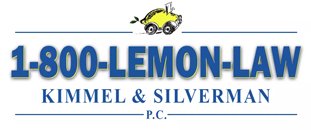Lemon Law Lawsuits
Litigation Over Lemon Cars, Including Class Actions, Is On The Rise Across The U.S.
January 18, 2002 – In what is widely considered the largest award in a "Lemon Law" case in the country, a Fresno, Calif., jury has ordered Ford Motor Co. to pay a couple $10 million in punitive damages for selling them a defective vehicle without revealing previous mechanical problems.
Lemon Lawsuits, and the law firms that handle them, are mushrooming in number throughout the country.
The lawyer for the plaintiffs in the Fresno case, William Krieg of William M. Krieg & Associates in Fresno, says that he plans to return to court this month to try to expand the suit into a class action representing thousands of California vehicle-buyers.
Krieg will seek to have Ford enjoined from reselling cars that it buys back with "owner appreciation certificates," which is a credit toward the purchase of another car, without disclosing the vehicles' repair histories. He alleges that the certificates are just a way to get around the Lemon Laws and save Ford a great deal of money.
Lemon Law litigation is not limited to Ford.
While there are no reliable statistics available on the overall number of suits, experts say many law firms are turning to class actions because individual lawsuits have little impact on manufacturers and car dealers.
For example, Craig Kimmel of Pittsburgh's Kimmel & Silverman, a firm that brings Lemon Lawsuits, says that he has a national class action suit, with 150,000 plaintiffs, against the Korean carmaker Kia Motors Co.
Kimmel calls the $10 million award against Ford the highest he has heard of, as other attorneys and auto-safety experts also have.
"If that happened more often, auto manufacturers would change their behavior," Kimmel says.
Automakers blame the increase in lawsuits on the growing number of aggressive consumer law firms getting into Lemon Law.
The automakers also say that with 50 different laws in the 50 states, there is confusion about what constitutes a lemon and how the industry may best deal with problem vehicles.
The suit against Ford "was to try to change Ford's practices of reselling alleged lemons, or cars that owners claimed were lemons, without disclosing the history," Krieg says. "The idea was to send a message to Ford that they can't get away with these practices."
Textbook Case
The Ford case, revolving around a 1997 Ford Taurus, could be a textbook example of Lemon Law issues.
The original owner of the car ran into transmission problems and returned it to the dealer, Decker Ford.
But instead of getting a new car in return, as Krieg maintains should have been the case, the owner got a $1,500 credit toward another Ford purchase.
The dealer then resold the Taurus without repairing the transmission, according to court documents. The buyers were Greg and Joann Johnson of Clovis, Calif.
According to Krieg, the Johnsons did not learn the car was a lemon until they had their own repeated problems with the transmission, including a complete replacement.
In addition to the $10 million, the jury awarded the Johnsons $17,811 in compensatory damages from Ford for money they spent on the car. The local dealer settled before the trial. Johnson v. Decker Ford Inc., No. 647076-9 (Fresno Co., Calif., Super. Ct.).
Krieg says the key to the case was the jury hearing that by issuing the certificates for a national average of $3,200 each, Ford saved from $6,000 to $10,000 per vehicle compared to the cost of buying back the cars. Krieg says that Ford's policy encouraged consumers not to report cars as lemons so they can be resold without a disclosure of their problems.
"The cost-benefit analysis for Ford showed that the practice was too compelling to stop," Krieg says.
Ford spokeswoman Kathleen Vokes made the following statement on the Fresno jury award:
"Ford appreciates its loyal customers and sometimes recognizes them with an Owner Appreciation Certificate. Certificates are used to enhance customer loyalty of high-value customers. Ford strongly believes in adhering to laws governing vehicle buybacks and doesn't use OACs for any purpose other than to generate good will. This was a single occurrence. Unfortunately, the prior repair history was not fully disclosed to a customer, resulting in this litigation. We respect the court's decision, but disagree with it. We are considering our next steps."
The attorney for Ford, D. Greg Durbin of McCormick, Barstow, Sheppard, Wayte & Carruth of Fresno, did not return calls for comment. Krieg, who was assisted by associates Kimberly Mayhew and Alan Yengoyan, says he expects Ford to appeal.
Not all automakers offer certificates. General Motors Corp. is among those that do not, says Jay Cooney, a spokesman in Detroit.
"If a vehicle must be repurchased, we repurchase it," he says, but consumers may be treated differently depending on the state's Lemon Law. "Some state laws do not benefit consumers," he says.
Cooney says that Lemon Lawsuits against GM are up, according to company statistics, although the number of class actions hasn't risen. He won't give specific figures.
Cooney blames the rise in such cases on what he calls a "dramatic increase" in lawyers practicing Lemon Law and in Lemon Law Firms expanding their practices into different states.
'Lemon Laundering'
Rosemary Shahan, founder and president of Consumers for Auto Reliability and Safety, a Sacramento, Calif.-based group working to improve Lemon Laws, says the Fresno case is "the largest verdict she had heard of for lemon laundering" -- the general term used in the industry to describe the practice of hiding the background of vehicles with major problems. She says that even if the award is knocked down on appeal, it "gets the manufacturers' attention."
Shahan alleges that most of the auto companies have been caught in lemon laundering, including DaimlerChrysler A.G., the third of the Big Three.
But Ann Smith, a DaimlerChrysler spokeswoman in Auburn Hills, Mich., denies that. She says that Chrysler tries to work with customers to fix vehicles, which may not necessarily be lemons. Repaired cars are well-documented and the dealer and the next buyer must sign off that full disclosure has been made.
Smith says that if a car is found to be a true lemon, it is either crushed or sold to an automotive training school. She declines to discuss whether lawsuits against Chrysler had increased in recent years, or whether Chrysler offers discount coupons.
Several years ago, Shahan says, a Florida attorney general subpoenaed records from 20 different manufacturers that showed that 88 percent of the time, consumers weren't told they were buying a lemon.
She says that Ford, with its certificates, wasn't worse than any of the other automakers.
"They're all trying to figure out ways to foist their mistakes off on the public," Shahan charges.
For example, she says, some states, such as California, have arbitration boards to help frustrated consumers get satisfaction when they have purchased a lemon. But the automakers often don't tell customers about the boards, or set up hearings in distant areas. Shahan says a survey conducted in California found that consumers find out about the boards from manufacturers less than 10 percent of the time.
Clarence Ditlow, executive director of the Center for Auto Safety in Washington, D.C., says lemon laundering is common practice all over the country.
Before Lemon Laws were passed in every state, only about 500 cars were bought back by manufacturers per year. Since 1995, Ditlow says, at least 100,000 lemons have been bought back each year.
"The dilemma is, 'What is a lemon?' " he says. "Only by disguising the nature of the problem can manufacturers recoup their loss."
Brian Kemnitzer of the consumer law firm Kemnitzer, Anderson, Baron and Ogilvey in San Francisco, says he is seeing fewer individual Lemon Lawsuits since the state law went into effect, but more class actions. "Single cases don't often have much impact," he says.
Dean Young of the consumer firm Young & McDonald in Akron, Ohio, says, "We have gotten verdicts against Ford and Chrysler on laundering lemons. People are very concerned at the large number of these vehicles that manufacturers are putting back into the system."
Young says he has handled hundreds of lemon cases and is now involved in one class action against Chrysler in Ohio and knows of others in North Carolina and West Virginia.
He says that only manufacturers know about all the lawsuits, and it is difficult to get details from them.




